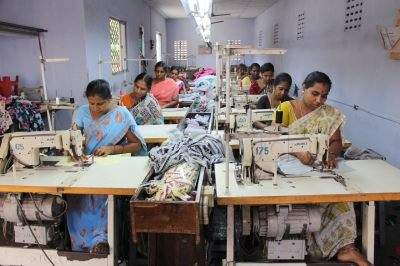CHENNAI: When German leisure wear brand Marc O’Polo called its Indian vendor Warsaw International to place an order for supply of some jerseys, proprietor Raja Shanmugam knew this order was different. The same product was supplied by his competitor in China to Marc O’Polo all these years. “We have a huge order. It’s a litmus test for us and the country. If we crack it, then gates open for more global brands to increase their India sourcing,” Shanmugam said.
“This season (normally begins September 1), we expect a lot more sourcing from India as brands realise that they need to look at alternatives. We only wish that the 6-month moratorium is extended as we are in very early days of restart and we need handholding and support from the government,” Shanmugam, who also heads the Tirupur Exporters Association, said. “I expect a 25% increase in sourcing this season.”
P Nataraj, MD of KPR Mills, a leading garment exporter and among the largest yarn exporters from India, echoed similar views. “Our buyers have told us that this year sourcing from India will be much higher than last. We will know about the actual size of increased orders in a couple of weeks. We are just opening up after the lockdown,” he said.
Similarly, Carter’s — once the world’s largest baby wear brand — has asked SP Apparels in neighbouring Avinashi in western Tamil Nadu to work on developing a new fabric (using man-made fibres) as it wants to shift significantly from China to India. “Carter’s is working with us to develop a new fabric. If it clicks, then it’s a huge opportunity,” said P Sunder Rajan, MD of SP Apparels.
“Beating China is tough as they have the scale, but looks like a beginning has been made this time. We will need a lot of support on labour, financial and infrastructure from the government,” Rajan added. Industry body Apparel Export Promotion Council (AEPC) too is chipping in.
“We are in negotiations with Taiwanese and Korean entities for a joint venture, which will work on developing the fabric with man-made fibre. We are very strong in natural fibres, but the opportunities in man-made fibre is humongous. We need assistance, which is why we are looking at joint ventures for fabric development. The talks are progressing well,” said A Sakthivel, chairman of AEPC. The contours of the discussion are to get the fabric ready for sports wear and lounge wear.
Garment exports from Tirupur dropped to Rs 25,000 crore for the year ended March 2020 from Rs 26,000 crore in the previous year as the Covid pandemic wiped away most March exports. The target was to export garments worth Rs 28,000 crore. Domestic sales were flat at Rs 25,000 crore for the fiscal. The town employs 6 lakh workers, half of whom are from other states.
(Source TOI)

Readers like you, make ESHADOOT work possible. We need your support to deliver quality and positive news about India and Indian diaspora - and to keep it open for everyone. Your support is essential to continue our efforts. Every contribution, however big or small, is so valuable for our future.












More and more the western world takes firm stance against China not only on ethical but environmental grounds they will realise that India is natural choice for manufacturing
I have travelled overland from Tibet to Nepal and personally witnessed how the roads work was carried out by what looked like prisoners in camps and suspect no different in their vast industries